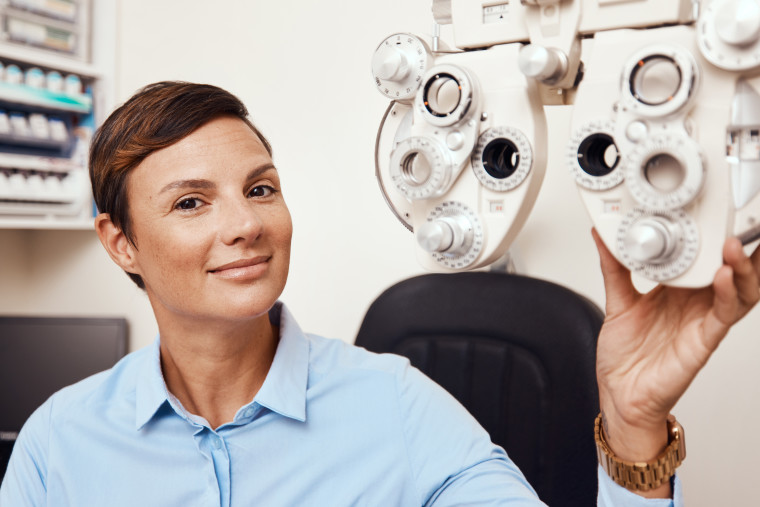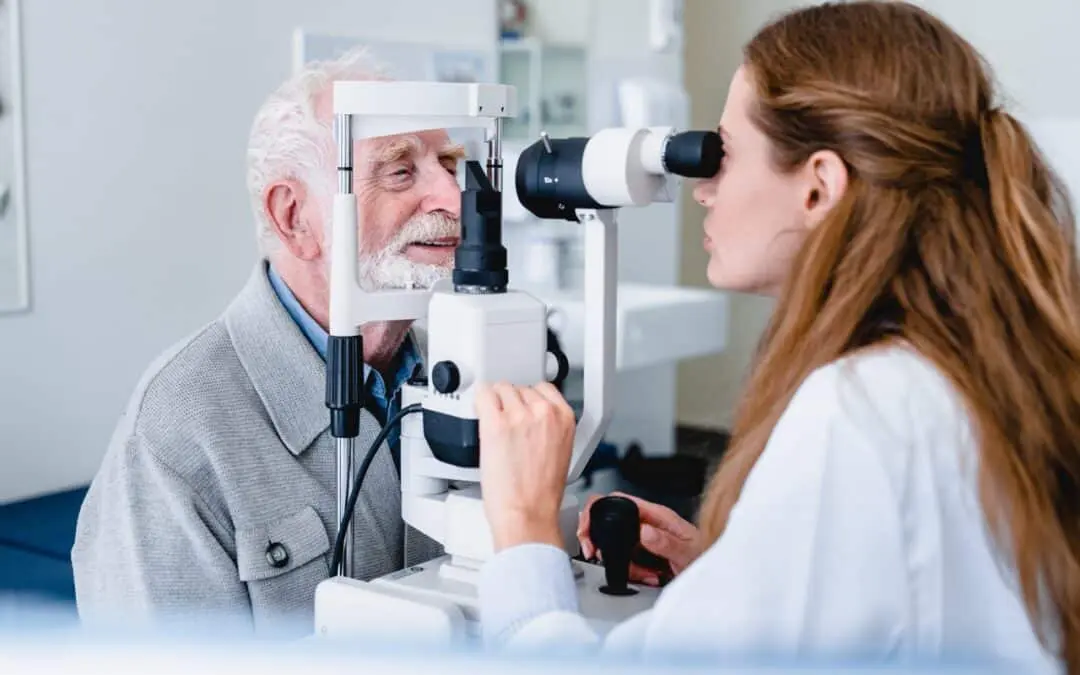All Categories
Featured
Opening Opportunities: Comprehensive Low Vision Recovery Alternatives.
Dealing with reduced vision can provide special challenges, however modern rehabilitation approaches empower individuals to prosper and adapt. From advanced innovation to hands-on training, there are many choices made to improve life and foster self-reliance. Below's a thorough look at the varied recovery solutions available for those with low vision.
The Role of Low Vision Rehabilitation
Reduced vision rehabilitation concentrates on aiding people enhance their staying vision and create skills to handle their surroundings. With a mix of tools, training, and personalized support, recovery programs improve functionality and boost confidence in navigating day-to-day tasks.
Secret Low Vision Recovery Options
Custom-made Aesthetic Help
High-Powered Magnifiers: These gadgets come in portable, wearable, or electronic formats, allowing individuals to read, create, or sight objects up close.
Telescopic Glasses: Perfect for improving range vision, these glasses aid with activities such as watching tv or analysis signs.
![]()
Filter Lenses: Tinted lenses reduce glare, boost contrast, and offer UV security, enhancing comfort and exposure.
Technical Technologies
Digital Zoom Instruments: Desktop and portable tools supply adjustable magnifying, enabling simpler accessibility to published materials and digital material.
![]()
Voice-Assisted Technology: Screen viewers, voice-enabled smart devices, and AI-driven applications aid individuals browse the digital world extra successfully.
Wearable Vision Aids: Smart glasses geared up with cams and acoustic comments offer real-time assistance with analysis, recognizing items, and spatial orientation.
Expert Training Programs
Alignment and Movement Training: This program teaches individuals how to move with confidence within their homes and communities, usually including walking sticks or guide canines.
Daily Living Skills: Specialized training outfits people with strategies to carry out important jobs such as cooking, dressing, and managing home chores.
Adaptive Visual Techniques: Therapists overview people on leveraging field of vision or scanning techniques to make up for vision loss.
Ecological Alterations
![]()
Simple modifications in your home or work can substantially boost accessibility:
Utilizing different shades for better item distinction.
Adding task illumination to enhance exposure.
Noting appliances with tactile signs for much easier operation.
Psychological and Social Assistance
Managing vision loss typically entails emotional adjustments. Support system and counseling services use a safe space to construct and share experiences durability.
Peer mentoring programs link individuals with similar challenges, promoting camaraderie and shared options.
Accessing Rehab Providers
Low vision rehab services are extensively available via:
Specialized Clinics: Ophthalmologists and eye doctors learnt low vision care provide tailored assessments and remedies.
Not-for-profit Organizations: Teams like the American Foundation for the Blind and VisionAware use resources, guidance, and recommendations.
Area Centers: Local services may offer inexpensive or cost-free training and accessibility to assistive tools.
Final Thoughts
Reduced vision does not have to suggest a reduced high quality of life. With the right combination of tools, training, and support, people can regain independence and take pleasure in fulfilling lives. By checking out the many recovery options readily available, those with reduced vision can find methods that work best for their one-of-a-kind needs and situations. If you or a loved one faces vision difficulties, do not think twice to connect to a low vision specialist to start the trip towards empowerment and versatility.
Dealing with reduced vision can provide special challenges, however modern rehabilitation approaches empower individuals to prosper and adapt. From advanced innovation to hands-on training, there are many choices made to improve life and foster self-reliance. Below's a thorough look at the varied recovery solutions available for those with low vision.
The Role of Low Vision Rehabilitation
Reduced vision rehabilitation concentrates on aiding people enhance their staying vision and create skills to handle their surroundings. With a mix of tools, training, and personalized support, recovery programs improve functionality and boost confidence in navigating day-to-day tasks.
Secret Low Vision Recovery Options
Custom-made Aesthetic Help
High-Powered Magnifiers: These gadgets come in portable, wearable, or electronic formats, allowing individuals to read, create, or sight objects up close.
Telescopic Glasses: Perfect for improving range vision, these glasses aid with activities such as watching tv or analysis signs.

Filter Lenses: Tinted lenses reduce glare, boost contrast, and offer UV security, enhancing comfort and exposure.
Technical Technologies
Digital Zoom Instruments: Desktop and portable tools supply adjustable magnifying, enabling simpler accessibility to published materials and digital material.

Voice-Assisted Technology: Screen viewers, voice-enabled smart devices, and AI-driven applications aid individuals browse the digital world extra successfully.
Wearable Vision Aids: Smart glasses geared up with cams and acoustic comments offer real-time assistance with analysis, recognizing items, and spatial orientation.
Expert Training Programs
Alignment and Movement Training: This program teaches individuals how to move with confidence within their homes and communities, usually including walking sticks or guide canines.
Daily Living Skills: Specialized training outfits people with strategies to carry out important jobs such as cooking, dressing, and managing home chores.
Adaptive Visual Techniques: Therapists overview people on leveraging field of vision or scanning techniques to make up for vision loss.
Ecological Alterations

Simple modifications in your home or work can substantially boost accessibility:
Utilizing different shades for better item distinction.
Adding task illumination to enhance exposure.
Noting appliances with tactile signs for much easier operation.
Psychological and Social Assistance
Managing vision loss typically entails emotional adjustments. Support system and counseling services use a safe space to construct and share experiences durability.
Peer mentoring programs link individuals with similar challenges, promoting camaraderie and shared options.
Accessing Rehab Providers
Low vision rehab services are extensively available via:
Specialized Clinics: Ophthalmologists and eye doctors learnt low vision care provide tailored assessments and remedies.
Not-for-profit Organizations: Teams like the American Foundation for the Blind and VisionAware use resources, guidance, and recommendations.
Area Centers: Local services may offer inexpensive or cost-free training and accessibility to assistive tools.
Final Thoughts
Reduced vision does not have to suggest a reduced high quality of life. With the right combination of tools, training, and support, people can regain independence and take pleasure in fulfilling lives. By checking out the many recovery options readily available, those with reduced vision can find methods that work best for their one-of-a-kind needs and situations. If you or a loved one faces vision difficulties, do not think twice to connect to a low vision specialist to start the trip towards empowerment and versatility.
Latest Posts
Check Out the Best Auto Repair Offers in Montclare, Chicago
Published May 25, 25
1 min read
Recognizing When Your Car Needs Skilled Car Repair at Montclare Auto Repair
Published May 25, 25
1 min read
Secure Your Home with High Quality Residential Roof Covering
Published May 24, 25
1 min read
More
Latest Posts
Check Out the Best Auto Repair Offers in Montclare, Chicago
Published May 25, 25
1 min read
Recognizing When Your Car Needs Skilled Car Repair at Montclare Auto Repair
Published May 25, 25
1 min read
Secure Your Home with High Quality Residential Roof Covering
Published May 24, 25
1 min read